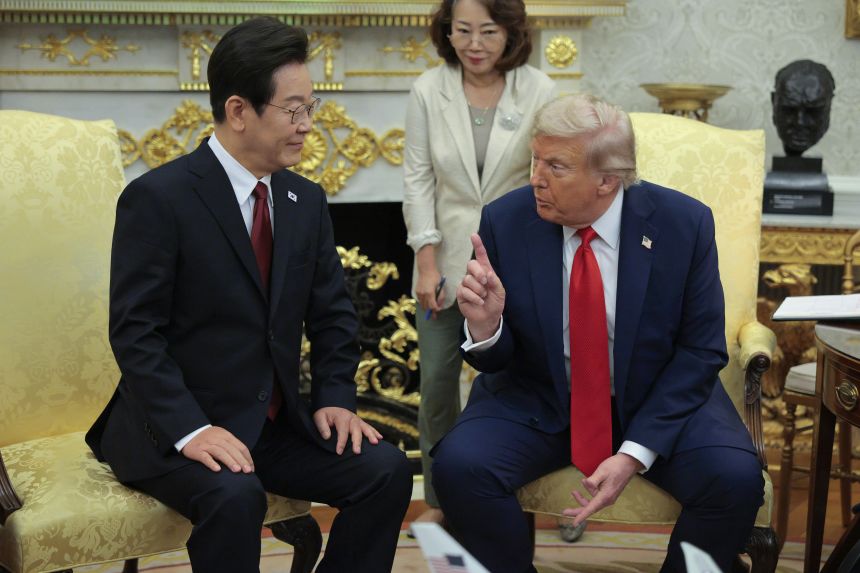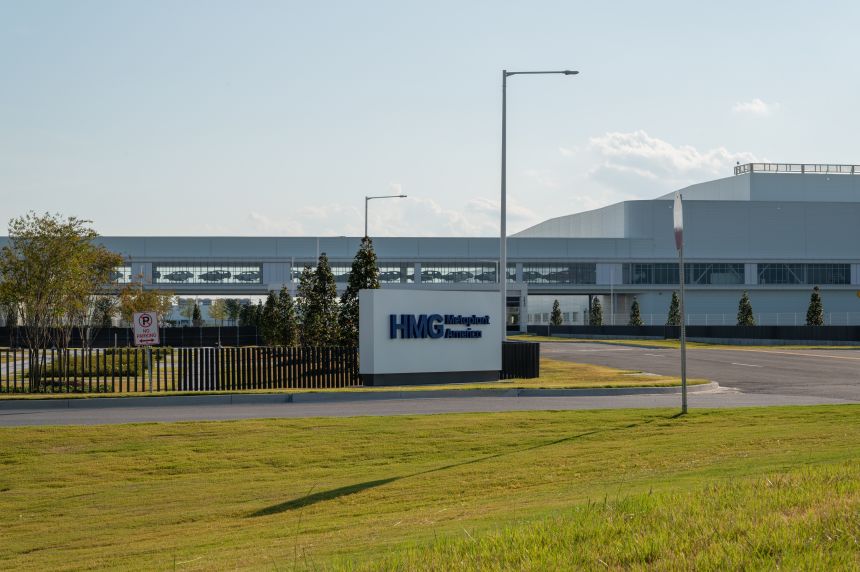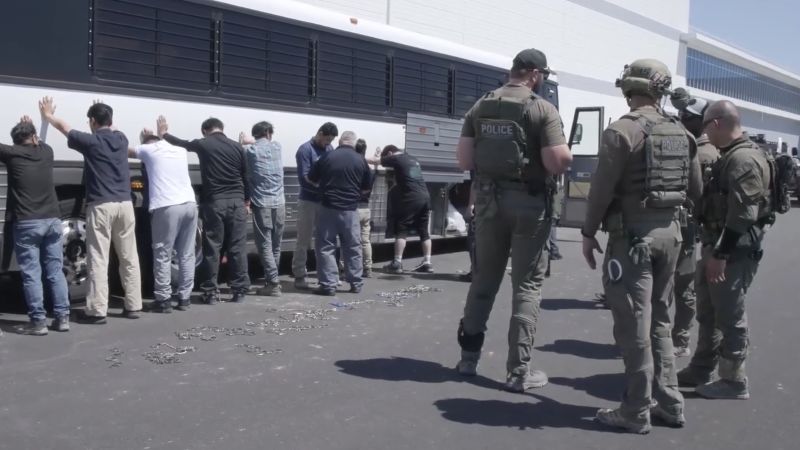Tweet
Email
Link
EDITOR’S NOTE: A version of this story appeared in CNN Business’ Nightcap newsletter. To get it in your inbox, sign up for free here.
Companies around the world are learning a lesson en masse: Any deal you strike with President Donald Trump’s government comes with a giant asterisk. Because you might believe you’re cutting a deal that aligns with the Trump agenda of rebuilding American manufacturing, but even hundreds of billions of dollars committed to that project may not be enough.
See here: Last week, the administration ordered its largest immigration raid of Trump’s second term, sending nearly 500 armed officers to raid the construction site of a Hyundai-LG battery plant in Georgia. They arrested 475 people, most of whom were South Korean nationals.
Per my CNN colleagues Graham Hurley and Dalia Faheid:
As officers, masked and carrying rifles, fanned across the sprawling site, they ordered construction workers to line up against walls, demanded dates of birth and Social Security numbers and began sorting who would be cleared to leave and who would be loaded onto buses bound for the Folkston ICE Processing Center, more than 100 miles away.
Workers described the scene as a “war zone.” One hid in an air duct to avoid capture. Others tried to flee into a sewage pond; agents used a boat to fish them out and prosecutors later alleged one man tried to flip the vessel. By the end of the day, hundreds were gone. Construction at the 2,900-acre site stopped cold.

The raid came less than two weeks after Trump and the president of South Korea, Lee Jae Myung, met in the Oval Office, touting $350 billion Seoul has committed to expand its manufacturing operations on American soil.
That’s the Trump promise, right? You want to do business in America, the world’s biggest economy with the most consumer-y consumers, you’ve gotta bring your operations here and create some jobs for American workers.
Of course. But it’s more complicated than that.
Companies often want to – or even need to – bring in their own workers to set up shop, install proprietary equipment, and train the less-skilled hourly employees who’ll be running things day to day.
For Korean conglomerates, doing so under less-than-above-board visas is not just an open secret, it’s a necessity, the Financial Times reported Monday, citing executives and industry groups. (Subscription required).
One senior Korean official told the FT the companies were in an “impossible position” after multiple administrations have pushed them to invest in American industry while refusing to facilitate short-term visas that would allow the projects to be completed on time. (Such an arrangement would require Congress to act, per the FT.)
American authorities, and Georgia in particular, had long “turned a blind eye” to workers coming in from Korea with questionable documentation, often for short-term “bursts” of construction activity, Jonathan Cleave, managing director for Korea at Intralink, a consultancy that supports foreign investment projects in the US, told the paper.

Kemp’s office issued a statement Friday in response to the raid.
“In Georgia, we will always enforce the law, including all state and federal immigration laws,” a Kemp spokesperson said. “The Department of Public Safety coordinated with ICE to provide all necessary support for this operation, the latest in a long line of cooperation and partnership between state law enforcement and federal immigration enforcement.”
There is still a lot we don’t know about the 300 or so Korean workers, including what kind of visas they had. Many of the other 175 workers who were swept up in the raid are Latino, according to several who spoke to CNN. A Hyundai spokesperson said none are direct employees of the carmaker. About 50 are employed by LG Energy Solutions, and another 250 work for HL-GA Battery Company, which operates under Hyundai and LG.
South Korean officials said they would charter a flight to bring the detained workers back to their home country as soon as this week.
What we do know is that the decision to raid the factory landed like a slap in the face for South Korea, one of the United States’ closest allies and sixth-largest trading partner, and will almost certainly have a chilling effect on any business thinking of striking a deal with the Trump administration. According to several outlets, the raid was front-page news across South Korea over the weekend, leading with images of workers — shackled at the wrists, waist and ankles — being loaded onto buses.
“I’m really speechless and furious,” Choi Jong-gun, a former vice foreign minister, told the Washington Post. “We are there to help boost up American industries… and once they are set up, there will be good infrastructure for increasing American employment. “But what we saw was those Koreans chained with handcuffs and treated as if they were terrorists or a bunch of thugs.”
Imagine the outrage, America, if you turned on the news one night to see a foreign country, known for its squalid migrant detention centers that officials boast are surrounded by alligators, arresting 300 of your countrymen and potentially locking them up, all after a “deal” your countries worked out.
While Hyundai told CNN its “US investment commitment remains unchanged,” some of its business trips to the US would be “subject to internal review.” There was already a chill in the air before last week’s raid. As Bloomberg notes, Samsung issued internal guidelines on US business travel on short-term visas, telling employees trips should not exceed two weeks.

